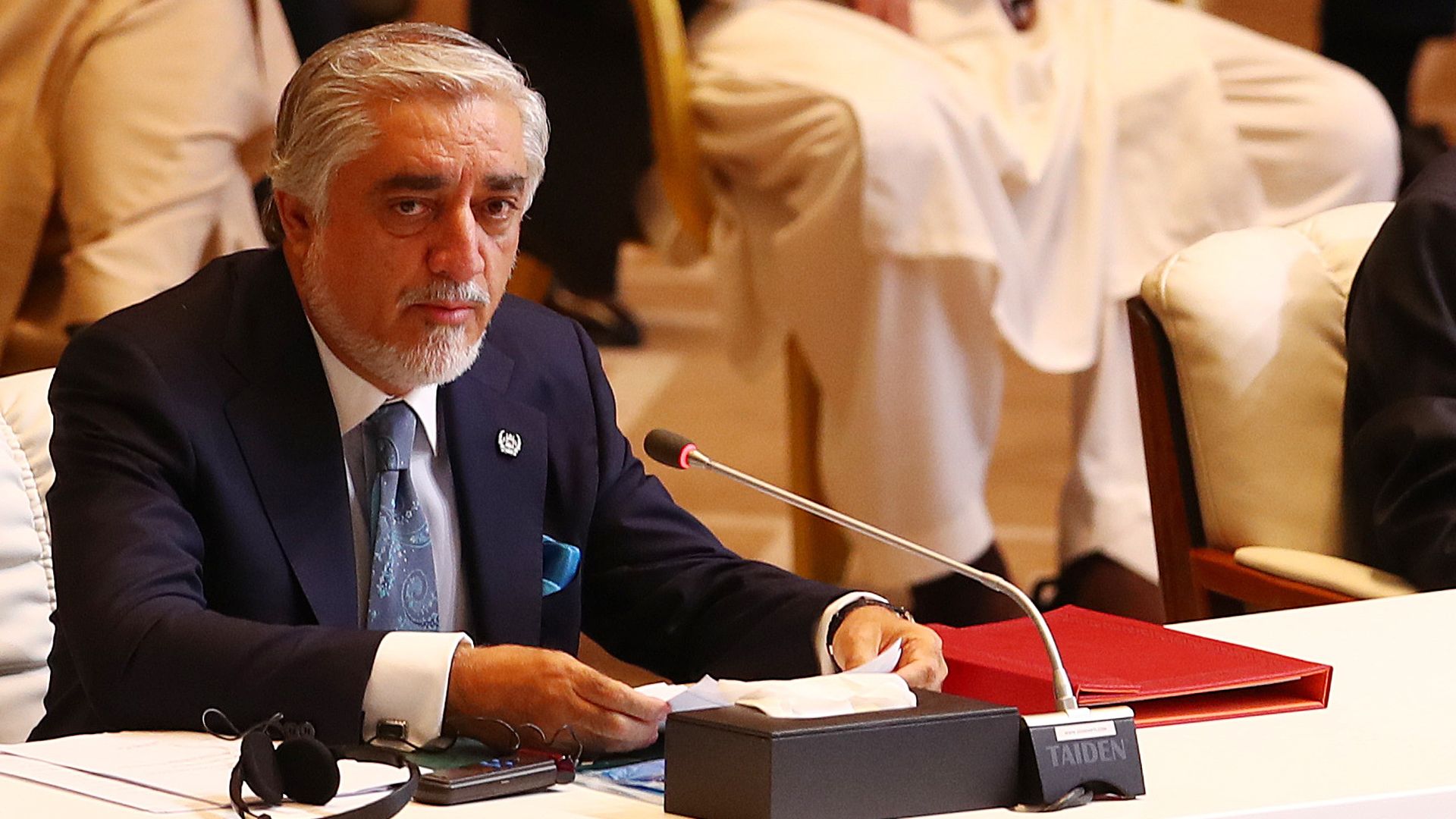Sep 12, 2020 - World
Afghanistan government and Taliban open peace talks in Qatar
Add Axios as your preferred source to
see more of our stories on Google.

Abdullah Abdullah, the head of the Afghan government delegation at the peace talks, speaking in Doha, Qatar, on Sept. 12. Photo: Stringer/Anadolu Agency via Getty Images
